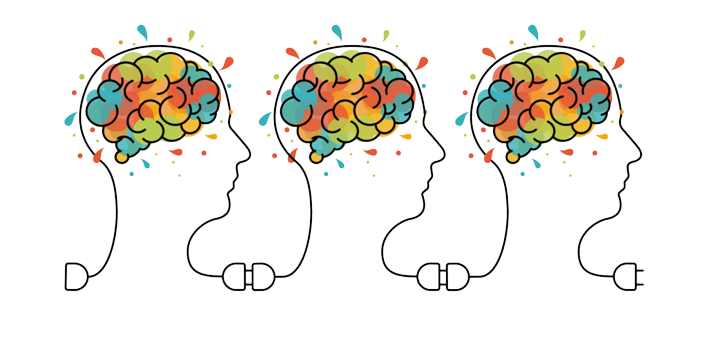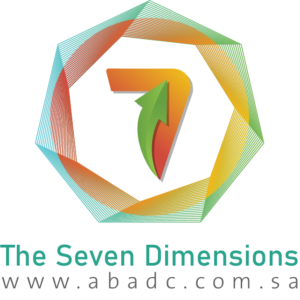
Autism spectrum disorder is often accompanied by a range of physical and mental health disorders and conditions and is not limited only to these conditions, Of which:
- Digestive system problems
- Epilepsy
- nutrition
- Sleep disorders
- Attention Deficit Hyperactivity Disorder (ADHD)
- Anxiety
- Depression
- Obsessive-compulsive disorder
- Schizoaffective disorder
- Bipolar disorder
- Down syndrome (DS)
Autism spectrum disorder and gastrointestinal disorders
Gastrointestinal disorders are among the most common disorders among children diagnosed with autism spectrum disorder, approximately eight times compared to other children. They include:
- Chronic constipation
- Abdominal pain
- Esophageal reflux
- Inflammatory bowel
Autism spectrum disorder and epilepsy
Epileptic seizures affect up to one-third of people diagnosed with autism spectrum disorder. It affects only 1% to 2% of the general population.
Major signs can include:
- Unexplained staring spells
- Involuntary movements
- Unexplained confusion
- Severe headache
Minor signs can include:
- Sleepiness
- Interrupted sleep
- Unexplained changes in abilities or feelings
- Treating epilepsy is crucial to preventing brain damage. Therefore, if you suspect that your child may be diagnosed with epilepsy, you should seek a diagnosis from a neurologist. The evaluation usually includes electroencephalograms (EEG) to check brain activity associated with seizures.
Autism spectrum disorder and nutrition
Feeding and eating problems affect about 7 in 10 children diagnosed with autism spectrum disorder.
Feeding problems can include very limited eating habits and intolerance of certain tastes and textures in food. Many adults diagnosed with autism suffer from picky eating, Food problems are often linked to hypersensitivity associated with autism spectrum disorder.
Chronic overeating may lead to obesity. The cause of overeating may be due to the inability to feel “full” or eating may be a sensory behavior for the individual.
Pica disorder: which is the intake of non-food items and is often associated with autism spectrum disorder, and it is one of the most common disorders among individuals diagnosed with autism spectrum disorder.
Autism spectrum disorder and sleep disorders
More than half of children diagnosed with autism spectrum disorder – as many as four in five – have one or more chronic sleep problems.
Many adults also have difficulty sleeping through the night, Sleep problems may lead to worsening behaviors and lower levels of education and skills in daily life.
Autism Spectrum Disorder, Attention Deficit Hyperactivity Disorder (ADHD)
ADHD affects 30% to 60% of people diagnosed with autism versus 6% to 7% of the general population.
ADHD involves a persistent pattern of inattention and difficulty remembering things and managing time. and organizational tasks, Hyperactivity/impulsivity that interferes with learning and daily life.
The symptoms of ADHD can overlap with those of autism spectrum disorder, and ADHD can be difficult to distinguish.
Treatment for attention-deficit hyperactivity disorder (ADHD) may include: Behavioral strategies and, in some cases, medications to treat ADHD.
Autism spectrum disorder and anxiety disorder
Anxiety disorders affect up to 42% of those diagnosed with autism spectrum disorder and affect an estimated 3% of children and 15% of adults in the general population.
Because individuals diagnosed with ASD may have difficulty expressing their feelings, anxiety can lead to a racing heartbeat, muscle tightness, and stomach pain, and some individuals may feel unable to move.
Social anxiety disorder, or extreme fear of strangers and the presence of people in social situations, is one of the most common disorders among individuals with autism spectrum disorder. Many of them find it difficult to control anxiety disorders.
Anxiety can also occur at different times and different activities, Including some things that were previously enjoyable to the individual himself.
Anxiety disorders can be diagnosed: By a specialist doctor, where treatments include, Behavioral interventions including cognitive behavioral therapy programs adapted for individuals diagnosed with autism spectrum disorder, In some cases, anxiety medications prescribed by a doctor may also be helpful.
Autism spectrum disorder and depression
Depression affects an estimated 7% of children and 26% of adults diagnosed with autism spectrum disorder. It affects about 2% of children and 7% of adults in the general population.
Rates of depression among people diagnosed with autism spectrum disorder increase with age and intellectual ability. Communication challenges related to autism spectrum disorder can mask depression.
Some signs can include: Loss of interest in previously favorite activities, The marked deterioration in cleanliness, Chronic feelings of sadness and despair, low self-esteem, anger, Depression can also include recurring thoughts about death or suicide.
Treatments for depression may include: cognitive behavioral therapy, In some cases, medications prescribed by a doctor for depression.
Autism spectrum disorder, obsessive-compulsive disorder
Research indicates that OCD is one of the most common disorders among adolescents and adults diagnosed with autism spectrum disorder among the general population.
It may be difficult to differentiate the symptoms of obsessive-compulsive disorder, repetitive behaviors, and limited interests from autism spectrum disorder.
Autism spectrum disorder and schizoaffective disorder
Both autism spectrum disorder and schizoaffective disorder carry some challenges with language and understanding the thoughts and feelings of others. The obvious differences in schizoaffective disorder include hallucinations.
The basic symptoms of autism spectrum disorder usually appear between the ages of 1-3 years, while schizophrenia may appear at the beginning of adulthood.
Treatments: Anti-schizophrenia medications prescribed by a doctor.
Autism spectrum disorder and bipolar disorder
Individuals diagnosed with bipolar disorder tend to alternate between manic states and depressive episodes.
It is important for us to understand the symptoms of bipolar disorder and autism spectrum disorder symptoms by looking at when symptoms appear and how long they last.
Example: A child diagnosed with autism spectrum disorder may have high energy and social curiosity during childhood. Therefore, the tendency to talk to strangers and make inappropriate comments is likely part of autism spectrum disorder and not a symptom of bipolar disorder.
treatment: Some medications used to treat bipolar disorder may be problematic for some people diagnosed with autism spectrum disorder who have difficulty recognizing and expressing their feelings. Therefore, the psychiatrist must provide additional, safer medications.
Down Syndrome and Autism Spectrum Disorder (DS-ASD)
Research indicates that approximately 16-18% of individuals diagnosed with Down syndrome are also diagnosed with autism spectrum disorder.
When autism spectrum disorder occurs in individuals diagnosed with Down syndrome, the characteristics of autism spectrum disorder must be noted (social and behavioral challenges, Communication difficulties and limited interests) in addition to the symptoms of Down syndrome include (intellectual disability, Delay in speech and language).
Reference:



